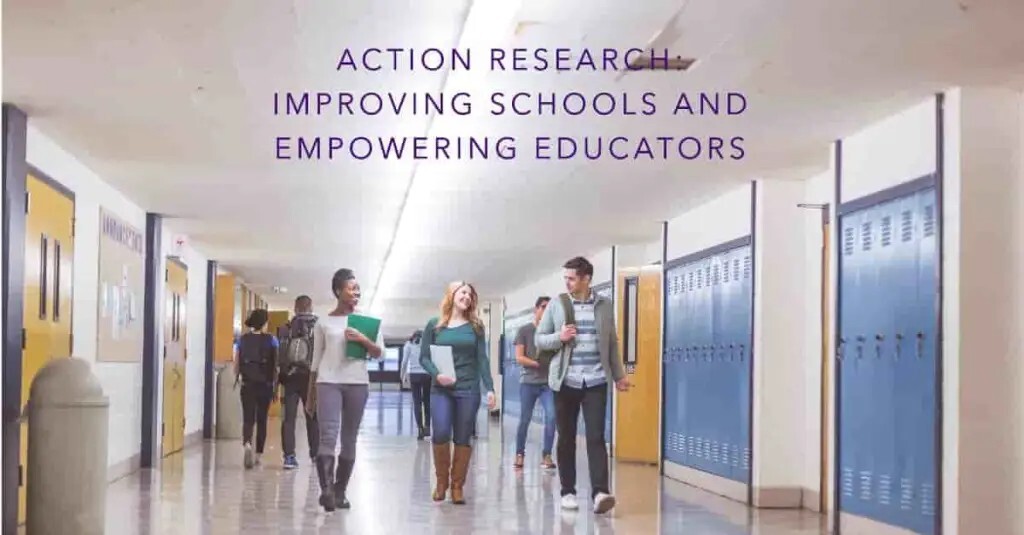Improving Schools and Empowering Educators

In the book “Action Research: Improving Schools and Empowering Educators” by Craig A. Mertler, the action research process is organized into four main stages, each comprising specific steps designed to guide educators in systematic inquiry to improve educational practices and outcomes. Below is a summary of these stages and steps, including a reflection on the challenges within the process, and a comparison of action research with traditional research.
Four Stages of Action Research
The Planning Stage:
- Identifying and Limiting the Topic:Choosing a specific and manageable focus for the research.
- Gathering Information:Collecting preliminary data and insights about the chosen topic.
- Reviewing the Related Literature:Investigating existing research and theories related to the topic.
- Developing a Research Plan:Crafting a detailed strategy for conducting the research, including defining research questions, selecting methodologies, designing data collection instruments, and ensuring ethical considerations are addressed.
The Acting Stage:
- Implementing the Plan:Putting the research plan into action.
- Collecting Data:Gathering data according to the methodologies and instruments outlined in the research plan.
The Developing Stage:
- Analyzing the Data:Interpreting the collected data to identify patterns, insights, and answers to the research questions.
- Developing an Action Plan:Formulating strategies based on the data analysis to address the research problem and improve practice.
The Reflecting Stage:
- Sharing and Communicating the Results:Disseminating findings to relevant stakeholders and the wider community.
- Reflecting on the Process:Evaluating the research process, the outcomes, and planning for future cycles of action research.
Most Challenging Step: Developing a Research Plan
Among these steps, developing a research plan in the Planning Stage is often the most challenging. This step demands meticulous preparation, requiring:
- Defining clear and focused research questions.
- Selecting appropriate and effective methodologies.
- Designing reliable and valid data collection instruments.
- Ensuring all ethical considerations are thoroughly addressed.
The complexity lies in the need for a robust and comprehensive plan that anticipates potential challenges and constraints, necessitating a high level of foresight and an in-depth understanding of the research context.
Differences and Similarities Between Action Research and Traditional Research:
Differences
Purpose and Focus
- Action Research:Aimed at solving specific, localized problems within a practical context, such as a classroom or school, focusing on immediate improvements.
- Traditional Research:Aims to contribute to broader academic knowledge, often focusing on theory development and hypothesis testing.
Participation
- Action Research:Involves practitioners (e.g., teachers, administrators) as active participants who collaborate in the research process.
- Traditional Research:Typically conducted by external researchers, with participants often serving as subjects rather than collaborators.
Flexibility
- Action Research:Flexible and iterative, allowing for changes and adaptations as the research progresses.
- Traditional Research:More rigid and linear, following a predetermined process from hypothesis formulation to data collection and analysis.
Similarities
Systematic Approach
- Both use systematic methods to investigate questions or problems, employing data collection, analysis, and interpretation to draw conclusions.
Rigor and Validity
- Both strive for methodological rigor and validity to ensure credible and reliable findings.
Ethical Considerations
- Both require careful consideration of ethical issues, such as informed consent, confidentiality, and participant welfare.
Why This Matters:
Understanding the distinctions and similarities between action research and traditional research is essential for several reasons:
- Appropriate Application:Helps educators and researchers choose the right approach based on their goals and context. Action research is suited for immediate, practical improvements, while traditional research is appropriate for theoretical advancements and broader generalizations.
- Collaboration and Engagement:Recognizing the collaborative nature of action research empowers educators to actively participate, fostering ownership and engagement.
- Impact and Relevance:Aligning the research approach with intended outcomes enhances the impact and relevance of the research. Action research directly benefits the local context, while traditional research contributes to the wider academic community.
Bibliography
- Mertler, Craig A. “Action Research: Improving Schools and Empowering Educators.”
- Mertler, C. (2023). Action research: Improving schools and empowering educators video 1.1 [Video]. SAGE Publications. https://edge.sagepub.com/mertler6e1/student-resources/chapter-1/video-resources
- Mertler, C. (2023). Action research: Improving schools and empowering educators video 1.2 [Video]. SAGE Publications. https://edge.sagepub.com/mertler6e1/student-resources/chapter-2/video-resources
- Thompson, K. (2023). Action research: Improving schools and empowering educators video 1.3 [Video]. SAGE Publications. https://edge.sagepub.com/mertler6e1/student-resources/chapter-1/video-resources
- Thompson, K. (2023). Action research: Improving schools and empowering educators video 2.1 [Video]. SAGE Publications. https://edge.sagepub.com/mertler6e1/student-resources/chapter-1/video-resources
